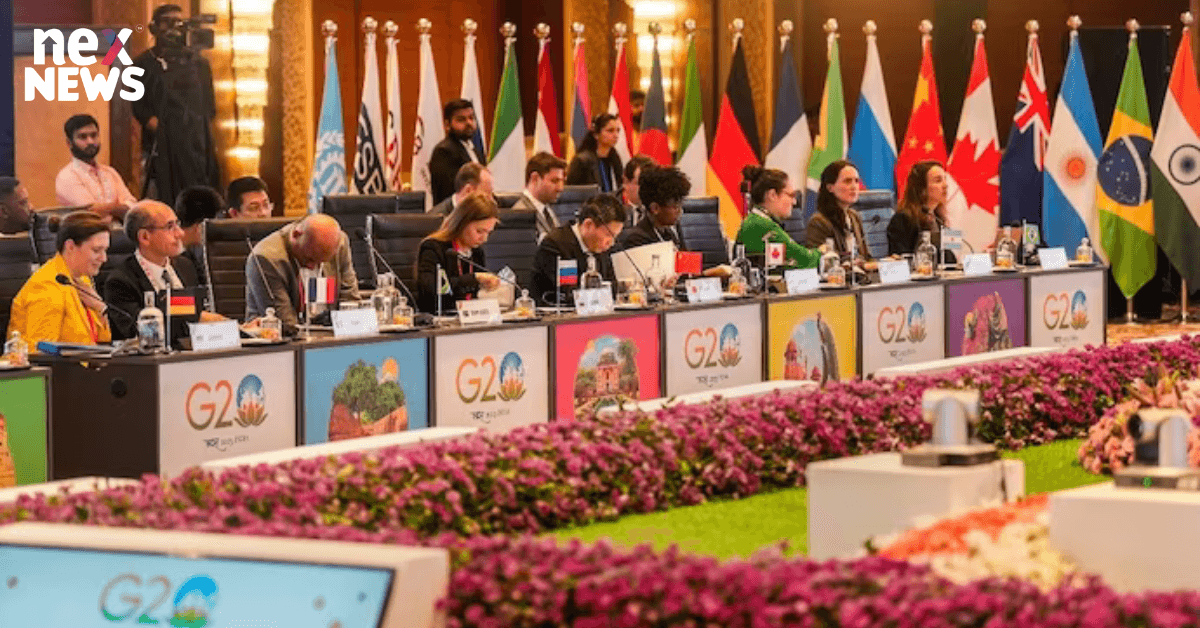The G20 Summit stands as one of the most significant international gatherings, bringing together leaders from the world's major economies to discuss and deliberate on pressing global issues. With a focus on economic cooperation, policy coordination, and diplomatic engagement, the G20 Summit plays a crucial role in shaping the course of the global economy and fostering international relations.
Introduction
The G20 Summit, short for Group of Twenty, is an annual gathering of leaders from 19 of the world's largest economies and the European Union. Established in 1999 in response to the financial crises of the late 1990s, the G20 Summit aims to foster dialogue and collaboration on a wide range of global economic and political issues.
History of G20 Summit
The G20 Summit traces its origins back to the late 20th century when finance ministers and central bank governors began meeting informally to discuss financial stability. The first G20 leaders' summit was held in 2008 in response to the global financial crisis, marking a pivotal moment in the group's evolution.
Objectives and Importance
The primary objective of the G20 Summit is to facilitate discussions and policy coordination among major economies to promote international financial stability and sustainable development. The summit serves as a platform to address issues such as trade, investment, innovation, poverty reduction, and global health challenges.
Membership and Participation
The G20 comprises 19 individual countries: Argentina, Australia, Brazil, Canada, China, France, Germany, India, Indonesia, Italy, Japan, Mexico, Russia, Saudi Arabia, South Africa, South Korea, Turkey, the United Kingdom, and the United States. The European Union is also represented, making the total number of participants 20.
Key Achievements Over the Years
Throughout its existence, the G20 Summit has achieved significant milestones, including the establishment of financial regulatory reforms, commitments to combat tax evasion, and initiatives to enhance infrastructure investment. The summit's outcomes have shaped global economic policies and influenced cooperation among nations.
Challenges and Criticisms
Despite its achievements, the G20 Summit faces challenges such as balancing diverse national interests, addressing inequalities, and ensuring effective implementation of agreements. Critics argue that the G20's voluntary nature can hinder concrete actions on critical issues.
Themes of Recent G20 Summits
Recent G20 Summits have covered various themes, including sustainable development, climate change, digitalization, and inclusive growth. These themes reflect the evolving priorities of the global community and underscore the need for collective action.
Role of G20 in Addressing Global Crises
The G20 has played a critical role in addressing global crises, such as the 2008 financial crisis and the COVID-19 pandemic. Through coordinated policy responses and international cooperation, the G20 has aimed to stabilize financial markets and promote economic recovery.
Sustainable Development and Climate Change Agendas
Sustainable development and climate change have become integral topics within G20 discussions. The group's commitment to achieving the United Nations' Sustainable Development Goals and efforts to mitigate climate change demonstrate its role in advancing global agendas.
Bilateral Meetings and Diplomacy
Apart from the official summit proceedings, the G20 provides a platform for leaders to engage in bilateral meetings and diplomatic discussions. These interactions enable leaders to address specific issues and build stronger relationships.
G20 and the COVID-19 Pandemic
The G20's response to the COVID-19 pandemic highlighted its significance in times of crisis. Leaders collaborated on resource allocation, vaccine distribution, and economic recovery plans to address the unprecedented challenges posed by the pandemic.
Future Prospects and Evolution
As the global landscape continues to change, the G20 Summit will likely adapt and evolve. It will need to address emerging issues such as technological advancements, geopolitical tensions, and evolving economic paradigms to remain effective in shaping international cooperation.
Conclusion
In conclusion, the G20 Summit serves as a vital platform for economic cooperation, diplomacy, and collaboration among the world's major economies. With a history of achievements and challenges, the G20 continues to play a pivotal role in shaping global policies and addressing pressing issues on a global scale.


POST A COMMENT (0)
All Comments (0)
Replies (0)